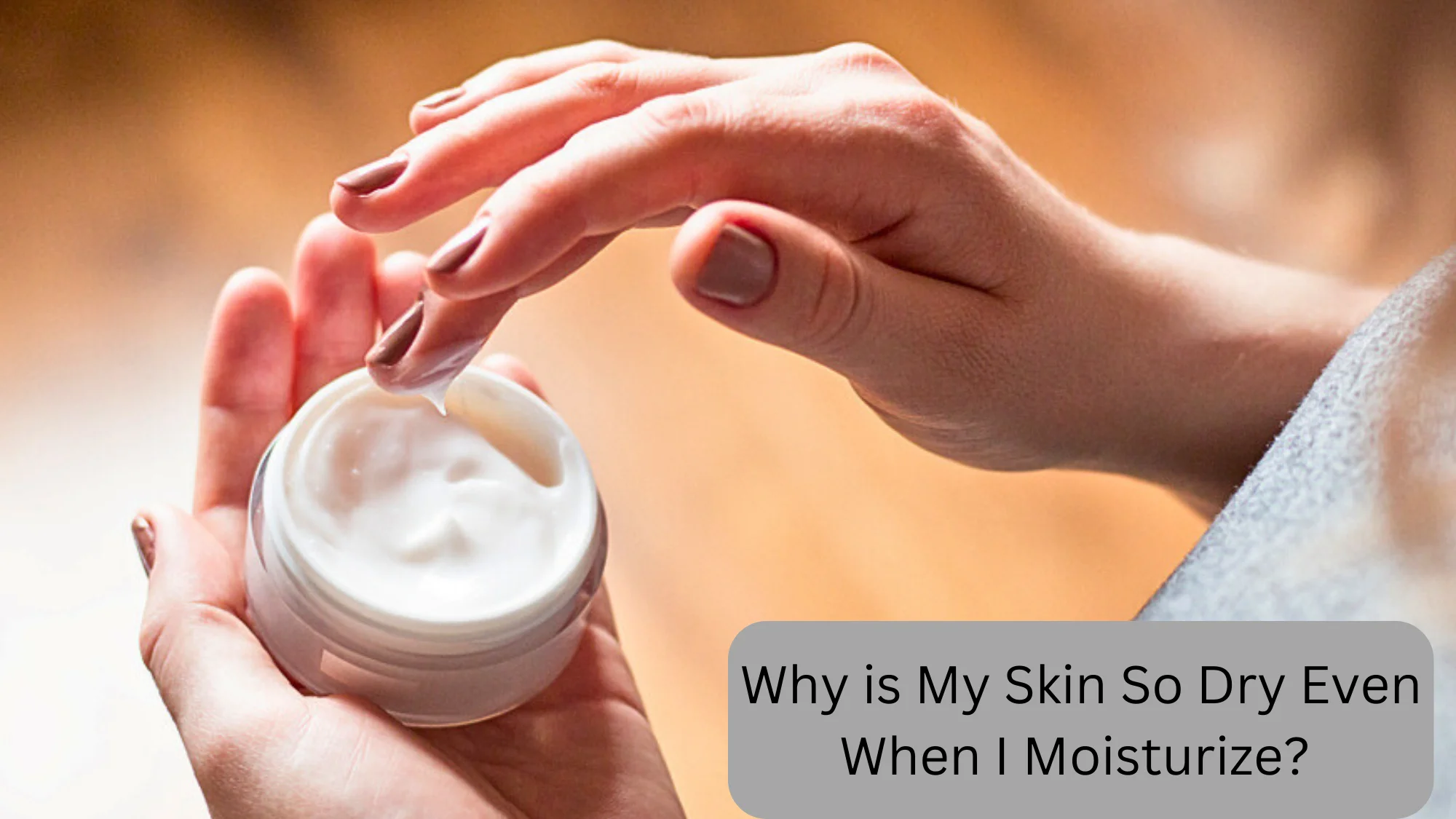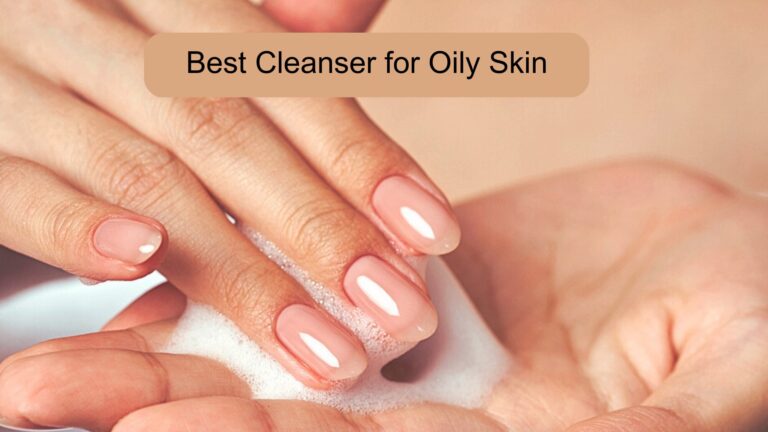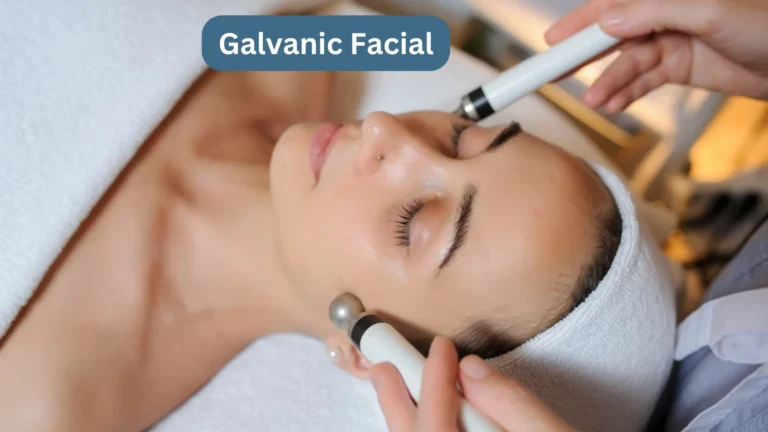Why is My Skin So Dry Even When I Moisturize? Here are the Things You are Doing Wrong!
Dry skin is a common skin challenge that affects many people at some point in their life. While moisturizing regularly is often recommended as a solution, some people may still experience a lot of dryness. “Why is my skin so dry even when I moisturize?” is a question that many people with dry skin often ask me.
Dry skin can be caused due to not using the right skin care products. Other factors such as lack of exfoliation, harsh climate, and washing your face with highly chlorinated water can also cause the skin to dry even when you moisturize.
In this article, we will explore some possible reasons why your skin is dry even when you moisturize and towards the end, I will give you some solutions on how to treat dry skin on the face. So, keep reading!
Why is My Skin So Dry Even When I Moisturize? 10 Reasons
“Why is my skin so dry and flaky on my face?” is the most common skincare question people ask me. The most common reason for dry skin is not using the right product on your face. But, there are other reasons too. Let’s discuss them in detail!
Not Using the Right Moisturizer
Not using the right moisturizer can be the most common reason why your skin is still dry even when you moisturize. Choosing a moisturizer that is too heavy or too light for your skin type can affect how effectively it hydrates your skin.
For example, if you have oily skin, a heavy moisturizer may clog your pores and cause severe breakouts, while a light moisturizer may not provide enough hydration.
Similarly, if you have dry skin, a light moisturizer may not be enough to provide the deep hydration that your skin needs. It’s important to the best moisturizer for dry skin that is appropriate for your skin type and to use it consistently to keep your skin hydrated and healthy.
Lack of Exfoliating
If you are not exfoliating your skin enough, it can be a reason why your skin is still dry even when you moisturize. Sometimes, you apply moisturizer and it does not absorb properly on the skin. So, you wonder, “Why does my skin not absorb moisturizer?” Well, the reason is the lack of exfoliation.
It is very crucial to exfoliate regularly as dead skin cells can accumulate on the surface of your skin, preventing moisturizers from penetrating and hydrating your skin effectively. This can lead to a buildup of dry, flaky skin that can be difficult to treat.
You Are Not Drinking Enough Water
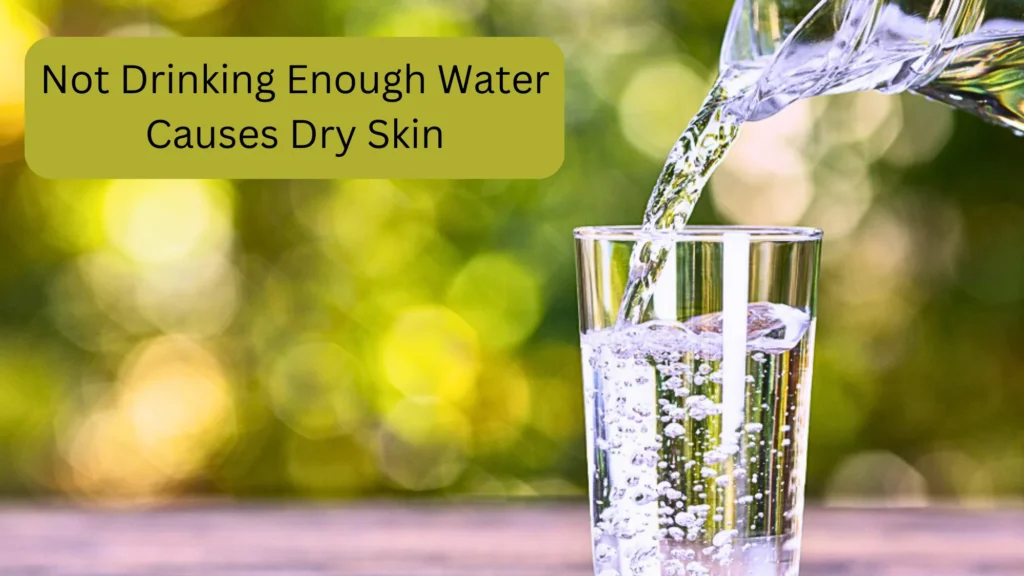
If you are not drinking enough water, it can also contribute to dry skin. How? Let me explain. When you are dehydrated, your skin can become dry, dull, and tight. This is because water is essential for maintaining the skin’s elasticity and plumpness.
If you are not drinking enough water, your skin may not be able to retain moisture effectively, making it difficult for moisturizers to hydrate your skin. To prevent this, it’s important to drink enough water throughout the day, especially during hot or dry weather, to keep your skin hydrated.
Harsh Climate
Now, you are thinking, “Why is my skin so dry even when I moisturize and drink water?” Well, there is another possible reason which is a harsh climate. Cold, dry weather or exposure to wind and sun can all participate to dry skin. A harsh climate can strip the skin of its natural oils and cause removes the moisturizer from the skin’s surface more quickly.
If you live in a climate with harsh weather conditions, it’s important to take extra steps to protect your skin, such as using a humidifier indoors, wearing protective clothing and accessories like hats and gloves, and using skincare products that are designed to provide extra hydration and protection.
Washing Face with Over Chlorinated Water
Over-chlorinated water can also contribute to dry skin, particularly if you have sensitive skin. Chlorine is a common disinfectant used in swimming pools and tap water to kill bacteria and other harmful microorganisms.
However, exposure to high levels of chlorine can strip the skin of its natural oils, leading to dryness and irritation. If you have sensitive skin, you should avoid prolonged exposure to chlorinated water (use a shower filter to remove chlorine from tap water) and apply a moisturizer after showering.
Medication Side Effect
If your skin was normal before but suddenly become extremely dry you must be wondering, “Why is my skin so dry and flaky all of a sudden?” Well, sudden dryness of the skin can be caused by side effects of certain medications.
If you are taking any medications and notice that your skin has become dry or irritated, it’s important to speak with your healthcare provider to determine whether the medication is contributing to the problem or not. Some medications that cause sudden dryness of the skin are:
- Diuretics
- Antihistamines
- Retinoids
- Isotretinoin
- Oral contraceptives
Use of Harsh Soap
Continues use of harsh soap can also contribute to dry skin, even if you moisturize your face daily. Harsh soap can remove the skin’s natural oils, leaving it feeling flaky, tight, and itchy.
This is especially true for soaps that contain strong fragrances, which can be irritating to the skin. If you have dry skin, it’s important to choose a gentle, moisturizing soap that is free from harsh chemicals and fragrances.
Overuse of Acne Treatment Products
Overuse of acne treatment products can also contribute to dry skin big time. Many acne treatment products, such as benzoyl peroxide and salicylic acid, work by drying out excess oil and unclogging pores. However, if these products are used too frequently or in high concentrations, they can also strip the skin of its natural oils, leading to dryness, redness, and irritation.
People ask me, “What do dermatologists recommend for extremely dry skin?” Dermatologists recommend following the instructions on acne treatment products carefully and starting with lower concentrations before gradually increasing the amount or frequency of use.
Sun Exposure (If You Don’t Apply Sunblock)
Sun exposure can cause the skin to dry out even when you moisturize. Sun exposure can damage the skin’s natural barrier, leading to moisture loss and dryness. Moreover, certain types of sunscreens and prolonged exposure to the sun can cause skin dryness.
Genetics
Lastly, Genetics can play a role in the dryness and tightness of the skin. Some people are simply more prone to dry skin due to their genetic makeup. The skin’s natural barrier, which helps to retain moisture, can be weaker in some individuals, making it more difficult for their skin to retain moisture.
Additionally, some people may have fewer sebaceous glands that produce natural oils, which can contribute to dryness. While you can’t change your genetic makeup, there are steps you can take to manage dry skin, such as using gentle skincare products and avoiding harsh soaps or hot water. Let’s discuss solutions to try to treat dry skin in detail.
10 Solutions to Treat Dry Skin Issues
Use a Gentle, Fragrance-Free Moisturizer
Using a gentle, fragrance-free moisturizer regularly is an important step in treating dry skin. When you shower or wash your face, your skin can lose its natural oils and become dry, itchy, or flaky. Moisturizer helps to restore the skin’s natural moisture barrier, preventing it from becoming dehydrated.
It’s important to choose a moisturizer that is gentle and fragrance-free, as fragrances and harsh chemicals can irritate dry, sensitive skin. Look for products that contain ingredients like glycerin, hyaluronic acid, or ceramides, which help to attract and retain moisture in the skin.
After showering or washing your face, gently pat your skin dry with a soft towel, leaving it slightly damp. Then, apply a small amount of moisturizer that suits your skin and body, using gentle circular motions.
Take Shorter Showers
Taking shorter, lukewarm showers or baths and avoiding hot water is a crucial step in preventing dry skin. Hot water is more likely to remove the skin’s natural oils, which act as a barrier to help prevent moisture loss. When these oils are removed, the skin becomes dry, itchy, and more prone to irritation and inflammation.
To prevent this, it’s recommended to take shorter showers or baths, ideally, no more than 10 minutes, using lukewarm water. Lukewarm water is less harsh on the skin and helps to preserve its natural oils.
Add a Hydrating Serum to Your Nighttime Skincare Routine
When you add a hydrating serum to your nighttime skincare routine, it effectively treats dry skin. Serums are lightweight, easily absorbed, and contain high concentrations of active ingredients that can penetrate deep into the skin.
To add a hydrating serum to your nighttime skincare routine, follow these steps:
- Cleanse your face with a gentle, moisturizing cleanser to remove dirt, oil, and makeup.
- Apply a mild toner (rose water) to help balance the skin’s pH levels and prepare it for the hydrating serum.
- Use a small amount (pea size) of hydrating serum on your fingertips and gently massage it into your skin using circular motions.
- Allow the serum to absorb fully into your skin before applying any other products, such as moisturizer or eye cream.
- Use the hydrating serum every night before bed for the best results.
When choosing a hydrating serum, look for ingredients like hyaluronic acid, glycerin, or vitamin E, which are known for their hydrating and nourishing properties. Avoid serums that contain alcohol, fragrances, or other harsh ingredients that can irritate dry, sensitive skin.
Avoid Harsh Soaps and Cleansers
Avoiding harsh soaps and cleansers is an important step in treating dry skin. Harsh soaps and cleansers can strip the skin of its natural oils, leaving it dry, itchy, and prone to irritation. Instead, it’s important to choose mild, gentle cleansers that are designed for dry or sensitive skin.
When selecting a cleanser, look for products that are labelled “gentle” or “mild” and avoid those that contain harsh ingredients like sulfates, alcohol, or fragrances. These ingredients can be drying and irritating to the skin, exacerbating dryness and causing further damage.
Use a Humidifier
Using a humidifier can be an effective way to treat dry skin, especially during the winter season when indoor heating can dry out the air. Humidifiers work by adding moisture to the air, which can help to prevent the skin from becoming dry, itchy, or flaky.
To use a humidifier to treat dry skin, follow these steps:
- Choose a humidifier that is appropriate for the size of the room you will be using it in.
- Fill the humidifier with water according to the manufacturer’s instructions.
- Turn on the humidifier and adjust the settings to your desired level of humidity. It’s generally recommended to keep the humidity level between 30 and 50 per cent.
- Place the humidifier in a central location in the room and let it run for several hours a day.
Using a humidifier can help to add moisture to the air, which can in turn help to prevent dry skin. It’s important to keep the humidifier clean to prevent the growth of bacteria and mould.
Drink Plenty of Water
Water is essential for maintaining the skin’s moisture balance and supporting the skin’s natural barrier function. When you drink enough water, it helps to flush toxins out of your body, which can improve the overall health and appearance of your skin.
Experts suggest drinking 72-104 ounces of water per day for men and 72 ounces per day for women. This can vary depending on factors such as physical activity, health conditions, and climate.
Use a Facial Oil
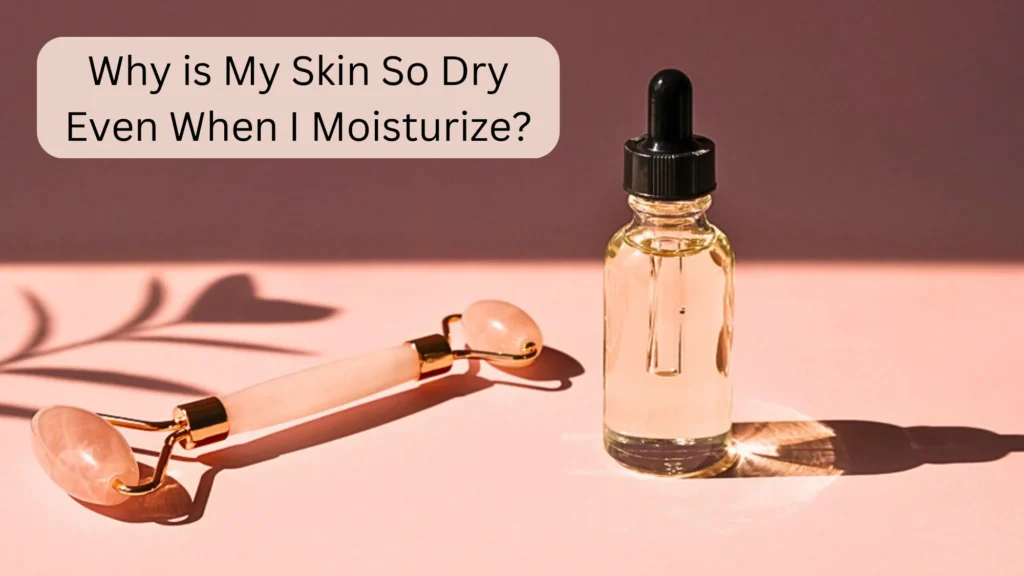
Using facial oils can be a beneficial addition to your skincare routine to treat dry skin. Facial oils are rich in essential fatty acids and antioxidants that help to hydrate and soothe the skin, while also providing a protective barrier to prevent moisture loss.
Here are some tips for using facial oils to treat dry skin:
- Look for facial oils that are specifically designed for dry or sensitive skin, such as argan oil, jojoba oil, or rosehip oil.
- To get the most benefits from facial oils, apply them after you have moisturized your skin with a gentle moisturizer. This will help to seal in moisture and provide an extra layer of protection against skin dryness.
- Facial oils are concentrated and a little goes a long way, so start with a small amount and add more gradually.
- Rub a few drops of facial oil between your palms and gently press onto your skin, focusing on areas that are particularly dry.
- While facial oils can be beneficial for dry skin, it’s important not to use too much, as this can lead to greasiness or clogged pores. Use only two to three drops at a time and avoid applying too close to the eye area.
Use a Hydrating Toner
Hydrating toner can be a valuable addition to your skincare routine. Toners are designed to help balance your skin’s pH levels and remove any remaining impurities after cleansing.
Here are some tips for using a hydrating toner to treat dry skin:
- Alcohol can be drying and irritating to the skin, so it’s important to choose a toner that is free from alcohol or other harsh ingredients.
- Look for toners that contain hydrating ingredients like hyaluronic acid, aloe vera, or glycerin. These ingredients can help to moisturize and soothe dry skin.
- When applying your toner, use a soft cotton pad or your fingertips to gently pat the product onto your skin. Avoid rubbing or pulling on your skin, as this can cause irritation and make dryness worse.
- After applying your toner, follow up with a moisturizer to help lock in moisture and prevent dryness.
Wrapping Up
All in all, dry skin is an uncomfortable issue to deal with, especially when you’re already moisturizing regularly. This makes you think, “Why is my skin so dry even when I moisturize?” There are many factors that can contribute to skin dryness, such as environmental factors, harsh skincare products, use of chlorinated water and dehydration. By taking steps to protect your skin, such as using a gentle cleanser, avoiding hot water, wearing protective clothing, and staying hydrated, you can help to prevent and treat dry skin. Let me know in the comment section below if you still have any queries!
You Might Also Like: 10 Best Cleansers for Dry Skin – Say Goodbye to Dryness!
FAQs
Can Over-Moisturizing Cause Dry Skin?
Yes, over-moisturizing can lead to dry skin. Over-moisturizing means applying too much moisturizer or using a moisturizer that is too heavy for your skin type. This can lead to clogging your pores and making your skin dehydrated resulting in dryness.
What Do Dermatologists Recommend for Extremely Dry Skin?
Dermatologists recommend moisturizing your face with a high-quality gentle moisturizer, avoiding hot water, humidifying your home, and avoiding scratching to treat extremely dry skin.
How do you Rehydrate Really Dry Skin?
Moisturize your skin regularly, use a gentle cleanser, exfoliate your skin daily, avoid irritants, and drink plenty of water to rehydrate really dry skin. Consult a dermatologist if these steps didn’t help to explore further treatment options.

